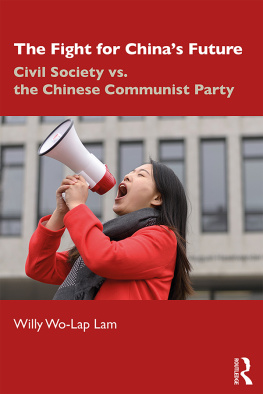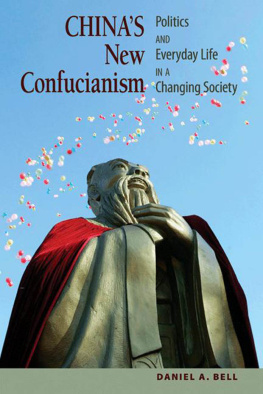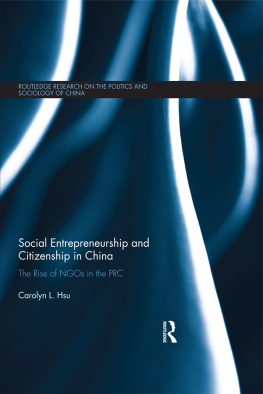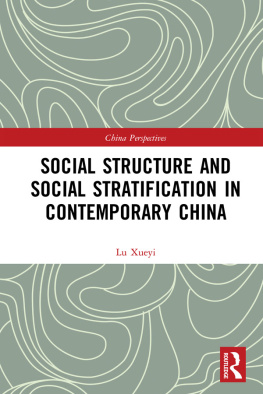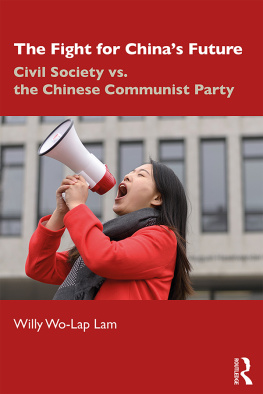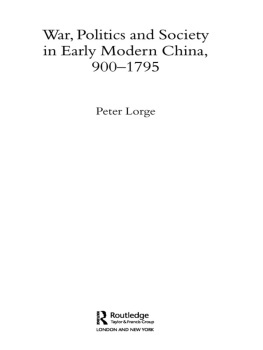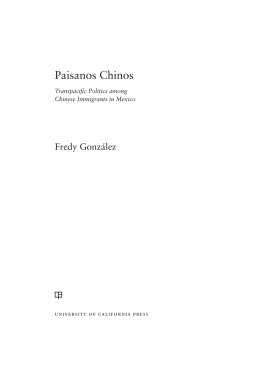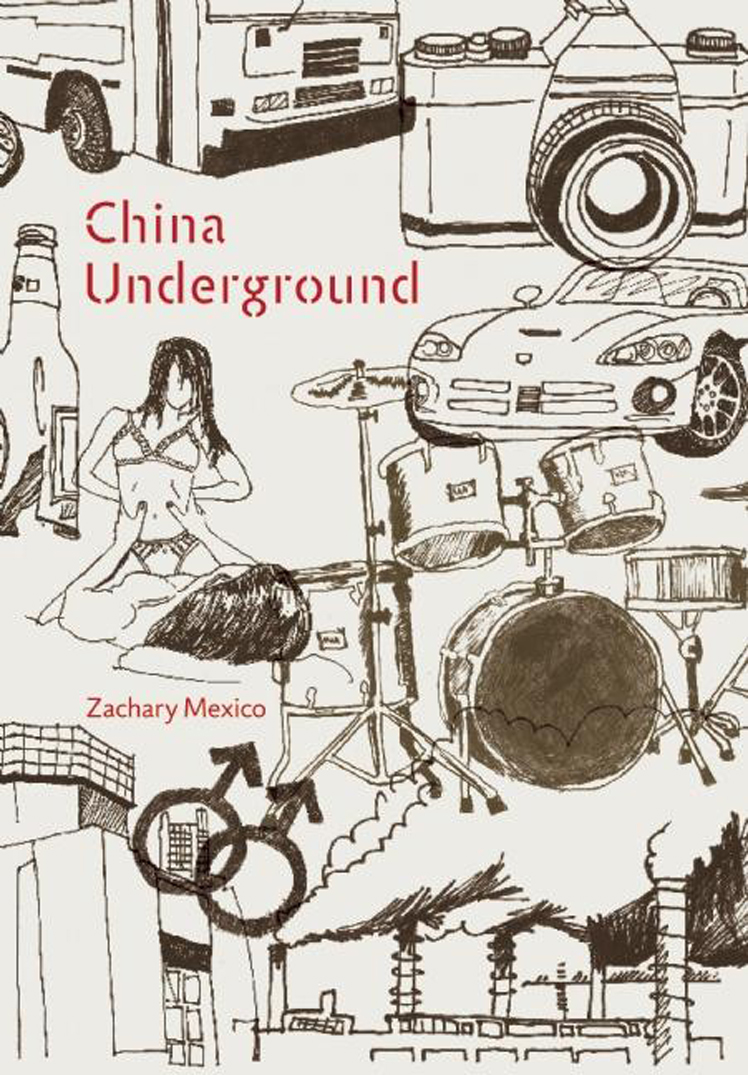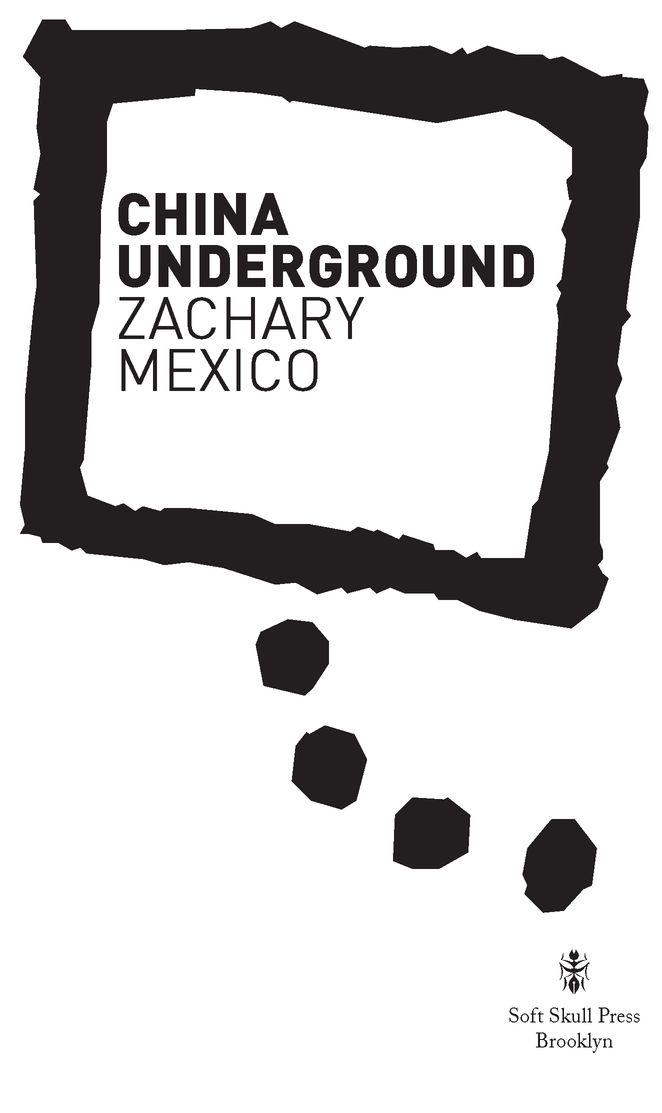Table of Contents
Guide
Table of Contents
INTRODUCTION
IN 2004, WHEN I returned to New York from a two-year stint living in Kunming, China, I spent a few months without a job, reading, writing music, catching up with old friends, and trying to figure out what to do next.
After the initial buzz of excitement from being home had worn off, I began to feel that I had made a mistake. I missed China, terribly.
In the beginning of the twenty-first century, it is hard to imagine a more exciting place than China. The countrys economy is growing by more than 10 percent a year. The lives of Chinese citizens in every stratum of society are changing; indeed, the very rules that define the parameters of their lives are changing. One-point-two billion people are hustling simultaneously, trying to figure out whats going on, trying to carve a place out for themselves in the new China.
My life in China had been colorful, unpredictable, and spontaneous; comparatively, New York seemed humdrum, boring, played out.
I began to spend hours a day reading books, flipping through magazines, and combing the Internet for China-related material. The majority of what I found in the mainstream media focused on Chinas booming economy and its role as the next global superpower. Other heavily reported-on issues included human rights, social unrest, income inequality, the stability of the Communist Party, and the plight of the migrant workers. Some of these stories I found useless, and others compelling. While most journalists were focusing on these kinds of macro-level, socio-economic situations, others, most notably the sublime New Yorker correspondent Peter Hessler, were publishing narratives about their own experiences in todays China.
But I wanted to read something different. I wanted to read about the crazy people Id met in China and the even crazier people theyd introduced me to. I wanted to read about the streets that hum with the energy of constant change, and how that change affects the young Chinese of my generation.
TWO YEARS LATER, I was fed up with waiting: instead of reading about the interesting people Id met in China, I decided to write about them. These are their stories, and some of my own.
MANY OF THE names have been changed, at the subjects request.
The Peasant Who Likes to Take Pictures
IM STUCK IN Beijings infamous traffic on the way to Capital Airport. It is the early evening: from the elevated ring road, I can see the sun setting through a thick gray haze. I have a ticket for an evening flight, the sixty-five-minute short hop to Shenyang, an industrial city in the Northeast of China, to meet up with the mysterious photojournalist Maohair. He has an MSN Spaces website, which he calls The Little Monkey King, and he recently set the Chinese Internet world abuzz by posting a series of his controversial photographs on a bulletin board.
I posted a comment on his blog and he sent me a text message agreeing to meet with me if I came to Shenyang; I have no idea what he looks like, as the images of himself on his website show him only in shadows.
I only know the photographs I have seen on the Internet, a series of snapshots that are both deeply fascinating and profoundly disturbing. One photograph shows an old man, his face contorted in pain, sobbing in front of a wedding picture of his son and daughter-in-law, who have been killed in a car crash. In another picture, a coal miner has been taken to the hospital after an accident; his entire upper body has been charred jet-black as the result of an explosion. There are oxygen tubes up his nose and his hands are clenched into gnarled, blackened fists. A third photo shows the victim of a car crash, covered by a tarp, and a group of people standing around gawking at the dead body.
IN THE HALF hour since I hailed the cab, weve traveled about a mile, and it looks like Im going to miss my flight. Im not looking forward to waiting around at the terminal for hours, drinking $6 coffee, until I can catch another plane.
The driver belches and I catch a faint whiff of garlic and vinegar. He mumbles in a thick Beijing accent that hes going to take a shortcut. This seems like a terrible idea, and just as I start to voice my objection, my cell phone rings. Its a provincial number that I dont recognize.
Wei? I blurt, answering the phone with a slow grunting sound, in the traditional Chinese manner.
Hello, are you looking to hire a handyman?
What? I respond, somewhat taken aback. I think you have the wrong number.
How much does the handymans job pay per day?
I think you have the wrong number. Im not trying to hire a handyman.
But this was the number in the newspaper ad.
You must have the wrong number. Read the ad again.
Theres a click, and the would-be handyman hangs up. The driver looks back at me quizzically. The garlic quotient of his breath has increased exponentially, and its somewhat alarming that hes not looking at the road. A queasy, acidic feeling, born of halitosis and fear, begins to take hold in my gut.
Why are you hiring a handyman?
Suddenly, as if prompted by an invisible hand descending from the filthy sky, the traffic dissipates. The queasy feeling is gone as quickly as it arrived.
Once we get onto the airport expressway, our cab speeds along at a cool eighty kilometers per hour and I make it to the airport with twenty minutes to spare.
TWELVE HOURS LATER: Im standing before a small night market set up on the sidewalk in front of a family-run restaurant in downtown Shenyang. Its very late. Maohair and I have been the only customers for hours. The restaurants owner has gone to sleep with his head on a folding table, and his kids are bumbling about idly with heavy eyes, waiting for us to leave so they can all go to bed. In China, these restaurants dont close until the last customers finished his meal, no matter what ungodly hour it is.
Were hanging out with an old man who has staggered over to our table, looking for a little late-night camaraderie.
The old mans teeth are yellow but even. A ratty brown jacket hangs loosely from his narrow shoulders, like a hobo scarecrow; attached to one of the sleeves with a safety pin is a red armband that indicates his status as a neighborhood watchman. He smells like a distillery but hes a pleasant fellow, with a playful, tireless smile superglued to his face.
I was a driver, he grumbles, a driver, back in 1980 when there were almost no cars. I drove all the government officials around. I was treated with respect everywhere I went.
He pulls a pack of cigarettes out of his pocket, lights up, and hikes his pantlegs up to his knees, exposing his lily-white legs, which are spotted here and there with uneven patches of coarse black hair.


